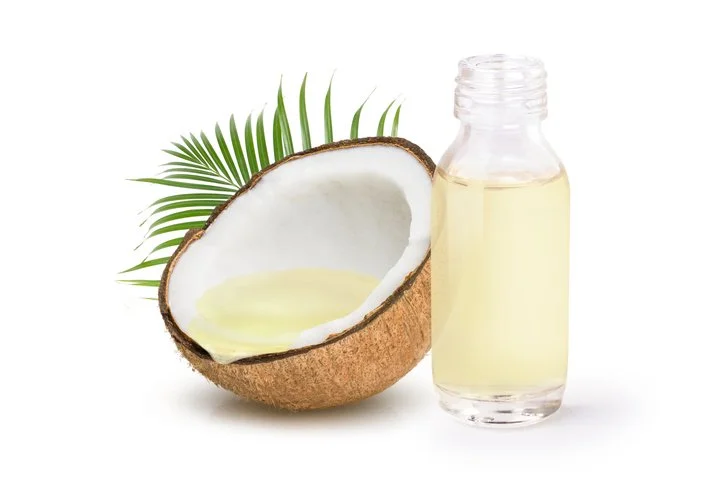Healthy Plant-Based Alternatives to Seed Oils
In recent years, there has been a growing awareness of the impact that different types of fats and oils have on our health. While vegetable oils made from seeds, such as soybean, corn, and sunflower oils, have been staples in many households, evidence suggests that oils like olive, avocado, and coconut are far healthier options. As you may have read numerous times on this site, I stress diets of whole-foods, devoid of processed carbohydrates and seed oils that contain animal-based foods with their fats. But what are the plant-based alternatives to seed oils? This blog post will explore why these oils are superior, delving into their health benefits, the processes behind their production, and the issues with the high omega-6 content in seed oils.
The Health Benefits of Olive, Avocado, and Coconut Oils
1. Olive oil, especially extra virgin olive oil, is well-known for its heart-healthy benefits. It is rich in monounsaturated fats, which are known to lower bad LDL cholesterol and maintain good HDL cholesterol levels. Olive oil is also packed with antioxidants, such as vitamin E and polyphenols, which help combat inflammation and reduce the risk of chronic diseases.
2. Avocado Oil Avocado oil, like olive oil, is high in monounsaturated fats and antioxidants. It also contains lutein, an antioxidant that is particularly beneficial for eye health. Avocado oil has been shown to improve heart health by lowering cholesterol and triglycerides. Additionally, it has anti-inflammatory properties that can benefit overall health.
3. Coconut Oil Coconut oil is special because it contains a high amount of medium-chain triglycerides (MCTs), which are processed differently than other fats in the body. MCTs offer a rapid source of energy and can aid in weight loss and improve brain function. Furthermore, coconut oil's lauric acid content gives it antimicrobial properties that can help combat harmful bacteria and viruses.
The Industrial Process of Seed Oils
The production of seed-based vegetable oils involves several industrial processes that can strip the oils of their natural nutrients and introduce harmful substances.
Extraction: Seed oils are typically extracted using high heat and chemical solvents, such as hexane. This process may degrade the oil's natural antioxidants and create harmful byproducts.
Refining: The oil is extracted and then undergoes refining to eliminate impurities, which involves further heating and chemical treatments. These processes can destroy beneficial nutrients and create trans fats.
Deodorizing: Many seed oils undergo deodorization to eliminate unpleasant odors, but this process, which involves high heat, can lead to the formation of harmful free radicals.
Bleaching: Oils are often bleached to enhance their color. This process involves passing the oil through materials that can filter out more of the oil's natural nutrients.
These processes result in oils that are stripped of beneficial compounds and can contain residues of the chemicals used during production. The high heat and chemical treatments also increase the likelihood of trans fats and other harmful substances being present in the final product.
The Problem with Omega-6 Fatty Acids
One major problem with seed-based vegetable oils is their high omega-6 fatty acid content. Although omega-6 fatty acids are necessary for good health, our modern diet often gives us too much of them, leading to an imbalance with omega-3 fatty acids.
1. Inflammation: An excess of omega-6 fatty acids can cause inflammation in the body. Chronic inflammation is associated with various health problems, including heart disease, arthritis, and cancer.
2. Imbalance with Omega-3s: For optimal health, it is crucial to maintain a balance between omega-6 and omega-3 fatty acids. Most people consume far more omega-6s than omega-3s, which can disrupt this balance and contribute to health problems. Ideal sources of omega-3s include fatty fish, flaxseeds, and walnuts.
3. Health Risks: High consumption of omega-6 fatty acids from seed oils has been linked to an increased risk of chronic conditions such as cardiovascular disease and diabetes.
Why Olive, Avocado, and Coconut Oils are Better Choices
1. Minimal Processing: Olive, avocado, and coconut oils are typically less processed than seed oils. For example, extra virgin olive oil and virgin coconut oil are extracted through cold pressing, which preserves their natural nutrients and beneficial compounds.
2. Healthier Fat Profile: These oils have a more favorable fatty acid profile. Olive and avocado oils are high in heart-healthy monounsaturated fats. Coconut oil contains MCTs, which have unique metabolic benefits.
3. Rich in Antioxidants: Olive and avocado oils are packed with antioxidants that help reduce inflammation and protect against chronic diseases, while coconut oil's antimicrobial properties provide additional health benefits.
4. Better Omega-6 to Omega-3 Ratio: These oils do not contain high levels of omega-6 fatty acids found in seed oils, which helps to maintain a healthier balance between omega-6 and omega-3 fatty acids in the diet.
Conclusion
Remember to choose the right type of oil, as it can significantly impact your health. Olive, avocado, and coconut oils offer numerous health benefits and are generally less processed than seed-based vegetable oils. By understanding the industrial processes and the potential health risks associated with high omega-6 fatty acid intake, you can make more informed decisions about the fats and oils in your diet. Opting for olive, avocado, and coconut oils can help reduce inflammation, improve heart health, and support overall well-being.
Sources:
"The Nutritional Challenges of MyPlate and MyPyramid." Journal of Nutritional Science. Available at: Journal of Nutritional Science
Mayo Clinic. "Olive Oil: Health Benefits." Available at: Mayo Clinic
Healthline. "Avocado Oil: Health Benefits." Available at: Healthline
Healthline. "Coconut Oil: Health Benefits and Uses." Available at: Healthline




